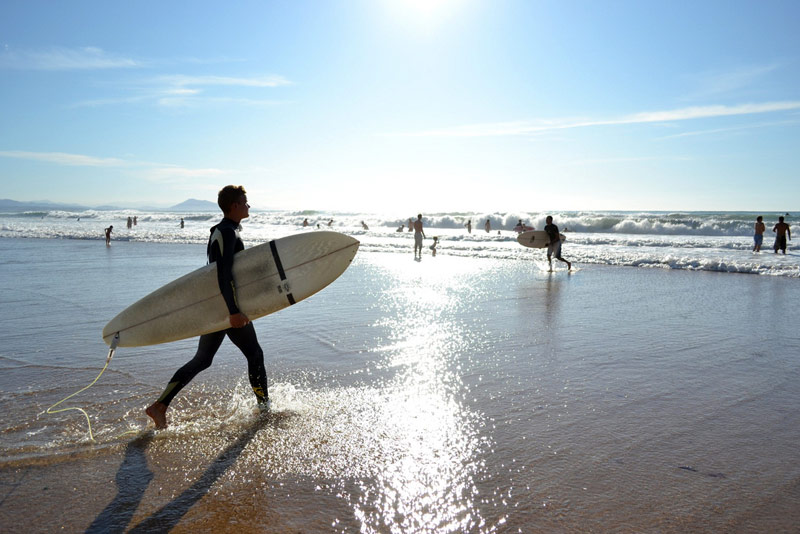When you imagine your children studying abroad, it’s likely that you’ll focus on two main elements: the language progress and the fun. But what if there’s more to it than that?
Studying abroad is a life changing experience for anyone, but when it comes to children, the benefits go far beyond just picking up a language and having fun. Introducing a child to a new language in a foreign setting can be a powerful jumpstart for their development.
In this blog post, we will explore the ten main advantages of studying abroad and learning a new language during childhood, and give you an exclusive look into the benefits of the programme from a student who has experienced it herself!
How can a language camp benefit young learners?
Cognitive Development
Immersing a child in a new environment is a great way to develop their mind and put them on a path towards great things! The brain is more flexible during childhood, making it easier for young minds to grasp more complicated linguistic structures and develop problem-solving skills.
Cultural Awareness
Through exposure to a different language brings with it a rich cultural tapestry. Children who study abroad become more culturally aware and open-minded, giving them a greater appreciation for diversity and empathy towards others.
Enhanced Communication Skills
Learning a new language naturally enhances communication skills, and getting this started early will mean that children will grow into expressive young adults.
Global Perspective
Studying abroad instils an international mind from an early age through meeting fellow students from around the world and seeing a new culture. Upon returning home, these students will have a much better appreciation of the world around them.
Adaptability and Resilience
Living in a foreign environment teaches how to navigate new social situations, adjust to change, and develop into capable young adults If you travel with the support of professionals in language learning, like ESL, it can help you learn even faster.
Early Language Proficiency:
The earlier a child is exposed to a new language, the more likely they are to achieve a high level of proficiency. Young minds are like sponges, absorbing the language around them effortlessly and developing a natural fluency.
Interested to hear how this can affect students personally? Keep reading for an exclusive interview with one of our past students…
Career Opportunities
In previous years, language skills were considered to be a “bonus” — they were nice to have, but not essential. However, in recent years, companies are increasingly seeking employees with language skills and a global mindset. Children who study abroad and learn a new language gain a competitive edge in their future careers.
Increased Academic Achievement
Research suggests that bilingual children often outperform their monolingual peers in various academic areas. Learning a new language sharpens cognitive abilities, improves problem-solving skills, and enhances overall academic performance.
Confidence and Independence
Living in a foreign country and navigating daily life in a new language fosters confidence and independence. Children learn to overcome challenges, make decisions, and gain a sense of self-efficacy that will serve them well throughout their lives.
Lifelong Love for Learning
Experiencing the joy of discovering a new language in a foreign land can ignite a lifelong love for learning. Children who study abroad develop a curiosity that extends beyond language and permeates other areas of knowledge and exploration.

Meet Martina R
Martina is one of our wonderful alumni from Spain who travelled to do an English summer camp in Bath, UK, with ESL for three weeks.
During her time in the UK, Martina stayed with a local family in a homestay, while studying and making friends in the area.
Read below to find out what she thought about her experience.
What did you enjoy the most during your programme?
What I enjoyed the most was to be immersed in the English culture as if I was living there, being part of the family, spending time with them, eating with the family, etc. I felt part of the city.
What was the best part of this experience?
There have been a lot of things, the people I met, the family and friends I made. I am still in contact with many of them.
Would you recommend this to other parents/children, and why?
Everything you learn is something you won’t forget, and you learn a lot! Including languages, being independent and how to do things by yourself.
Where would you like to go next?
I’d love to go to the USA or Canada to discover a new culture. But I’d like to go to Torquay in the UK too, I think it’s similar to Bath but in a different part of England.
Did you feel that you improved your language skills
The speaking and understanding have improved significantly. In England, the accent is very particular; when you learn English in school it’s not the same as listening to real British accents, the words they use, the accent etc, is much different.
If someone hesitates about investing in a summer camp for their children, what would you tell them?
I recommend it to everyone.
I have learnt a lot as a person and I have grown. You learn much more than what you imagine when you are there, when you are back you realise all the new things you’ve learnt. All the people you meet are just fantastic. I will always take that with me.



